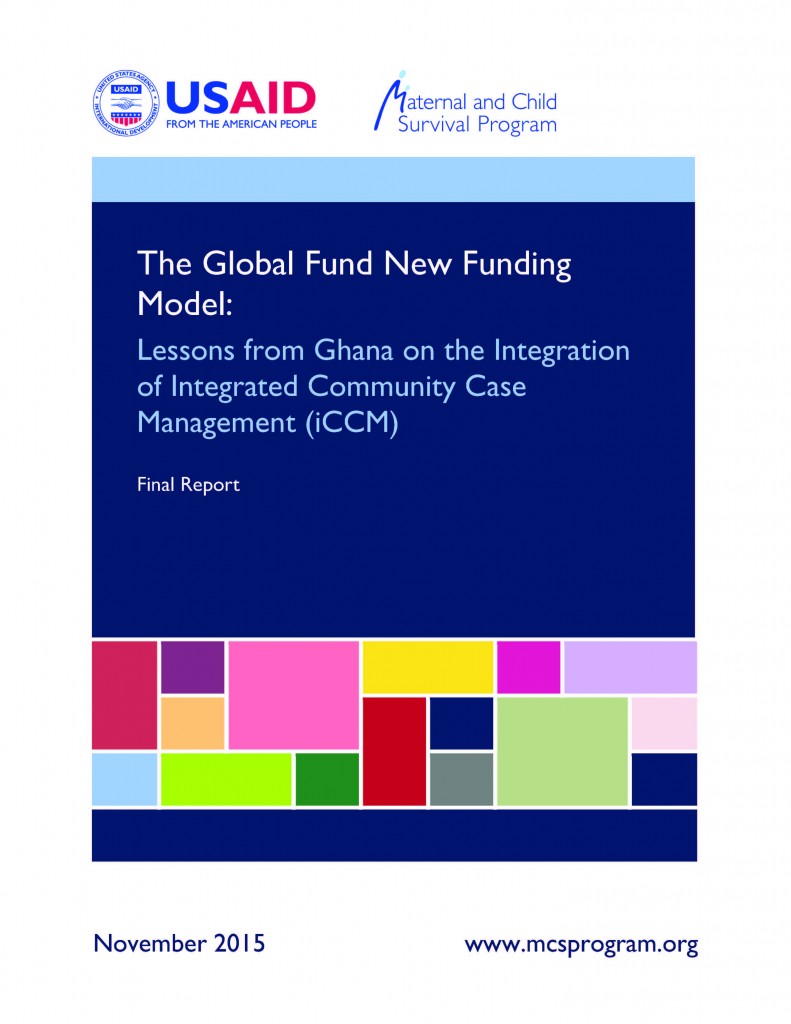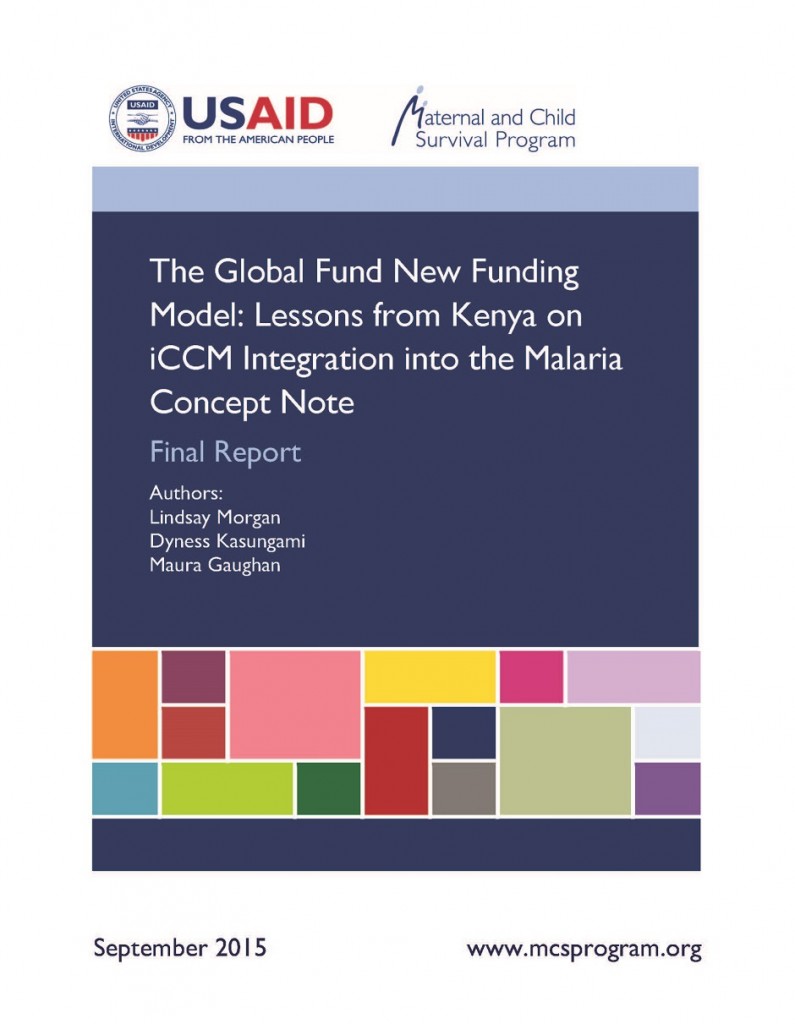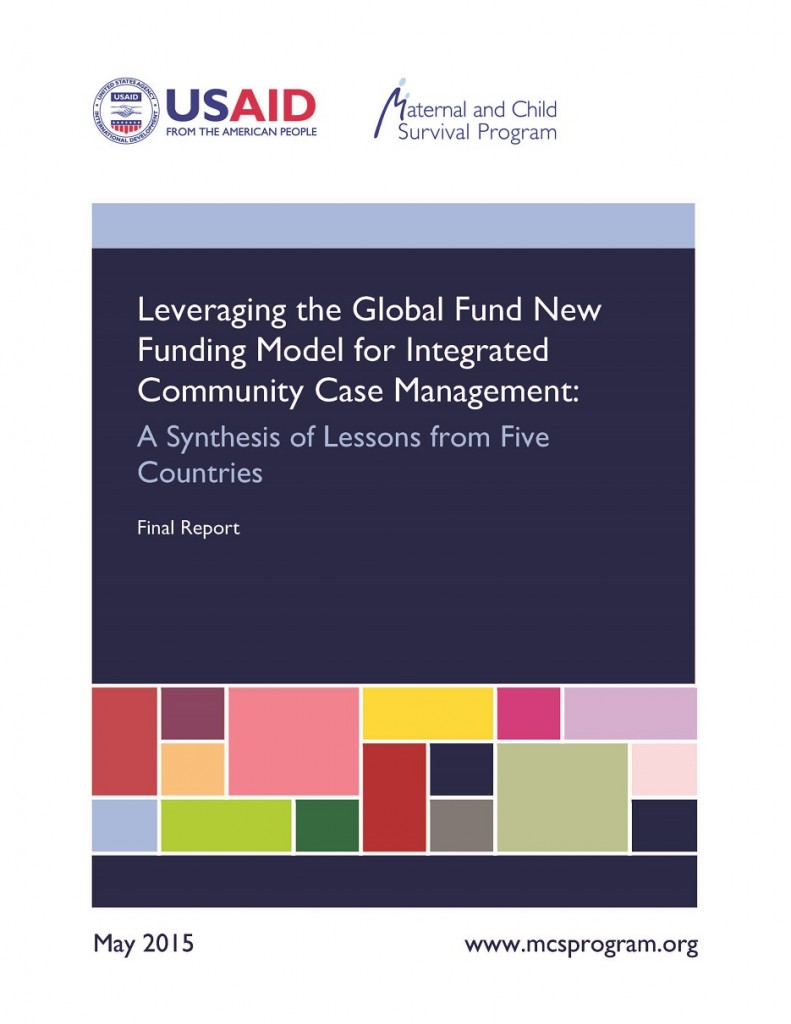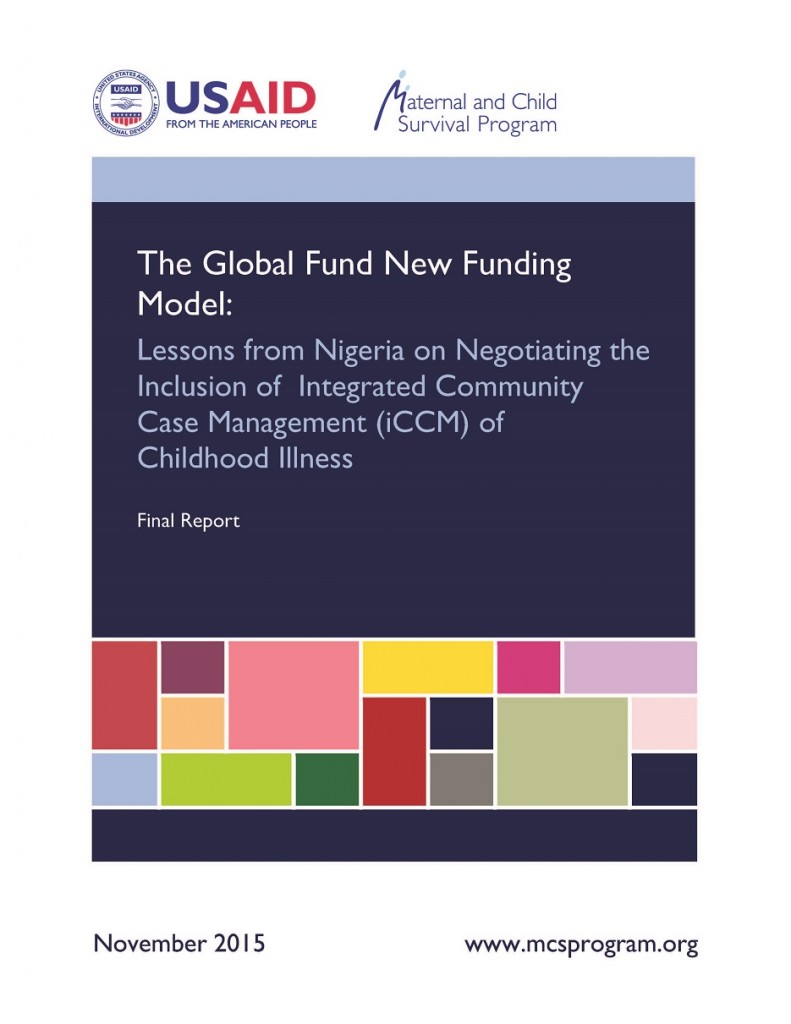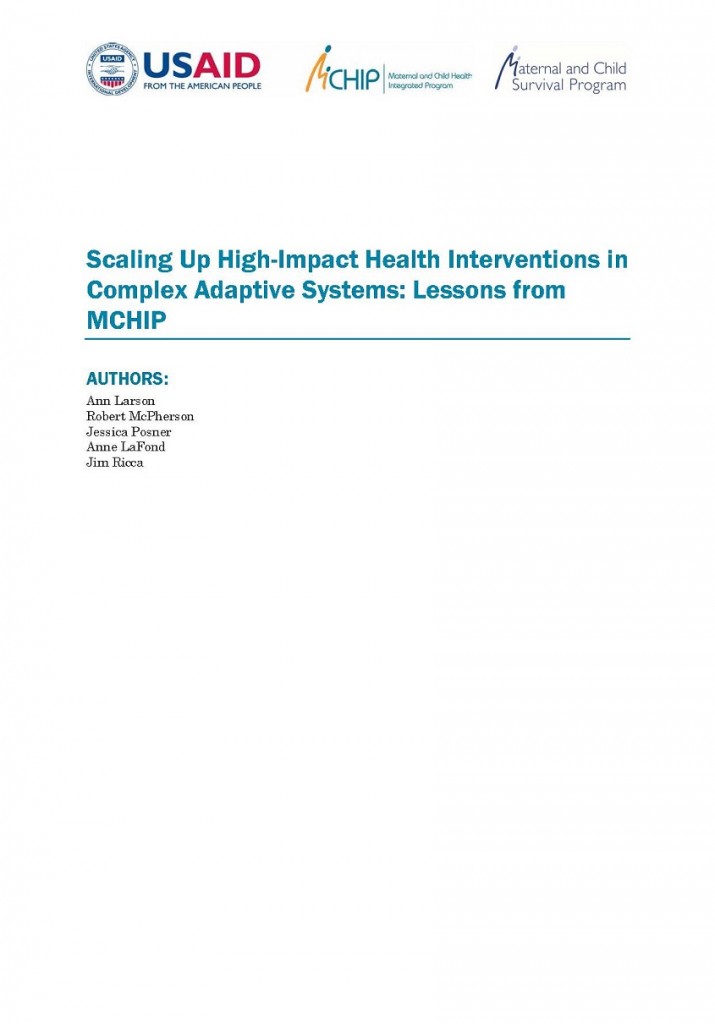
This report grew out of a review of the scale up of six maternal and child health interventions in India, Mali, Bangladesh and Malawi. The objective of the review was to identify effective scale-up strategies. […]
Read More…
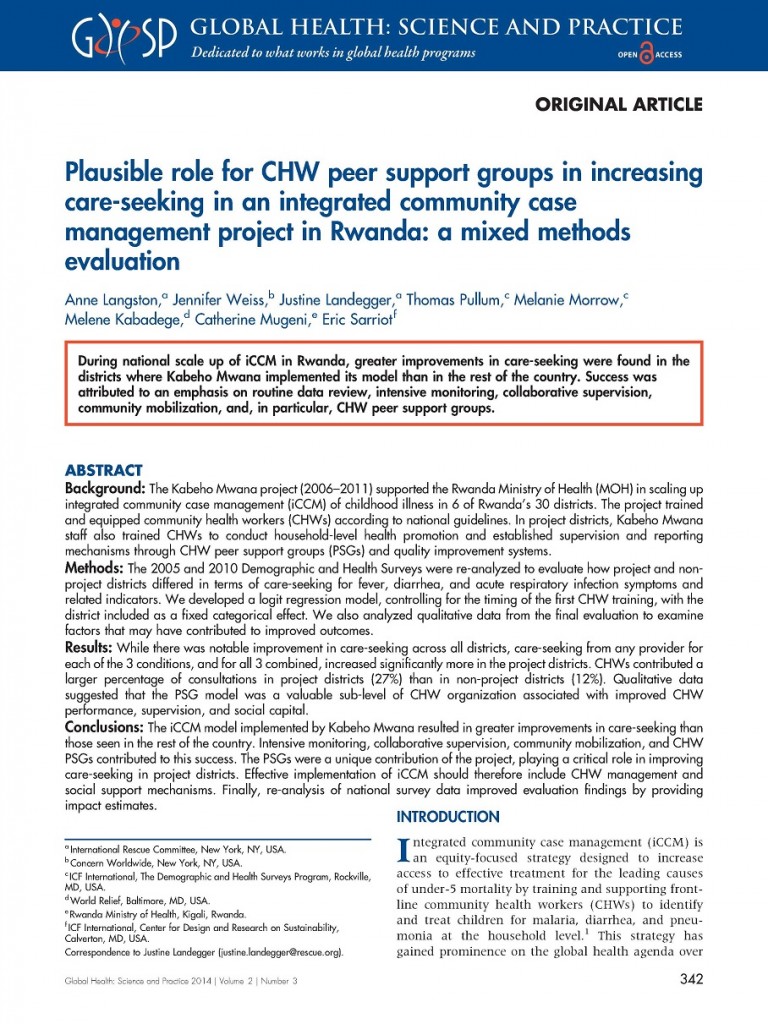
This MCSP co-authored article, published in Global Health: Science and Practice, reveals greater improvements in care-seeking during national scale up of integrated community case management in Rwanda. Success was attributed to an emphasis on routine data review, intensive monitoring, collaborative supervision, community mobilization, and, in particular, CHW peer support groups. […]
Read More…
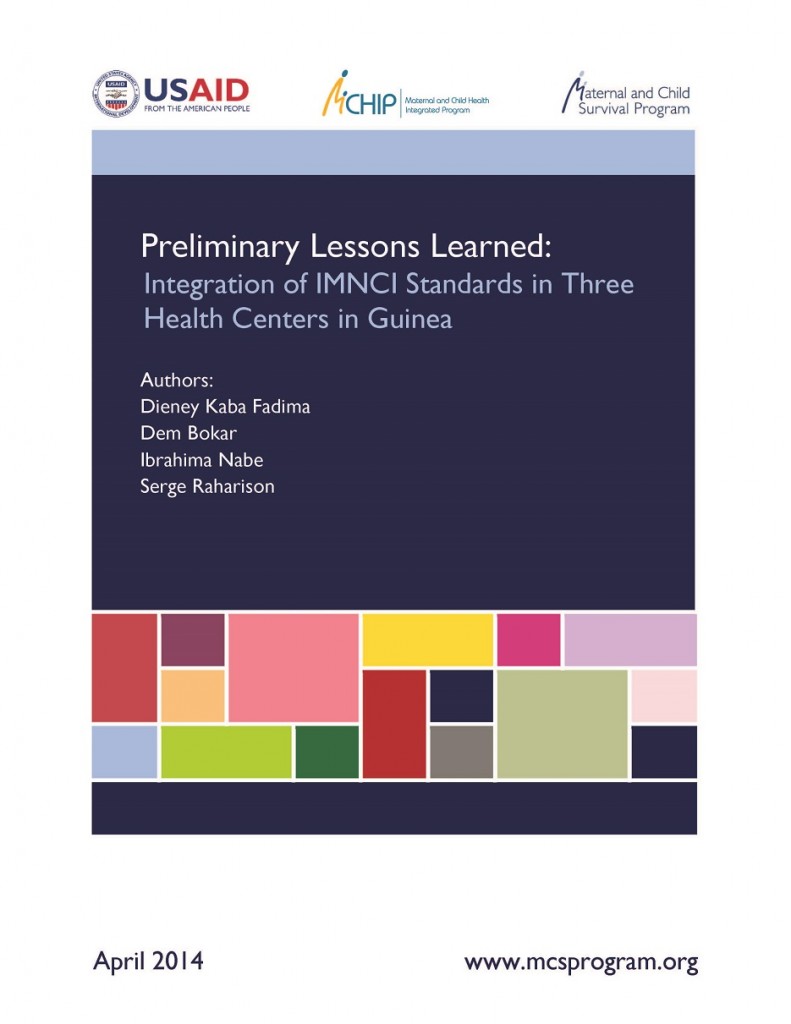
Since the early 2010s, Guinea has implemented the Standards-Based Management and Recognition (SBM-R™) approach to strengthen the quality of services in emergency obstetric and newborn care (EmONC), family planning (FP), and infection prevention (IP). In the first quarter of 2014, the total number of health facilities implementing SBM-R reached 60. In October 2013, the SBM-R […]
Read More…
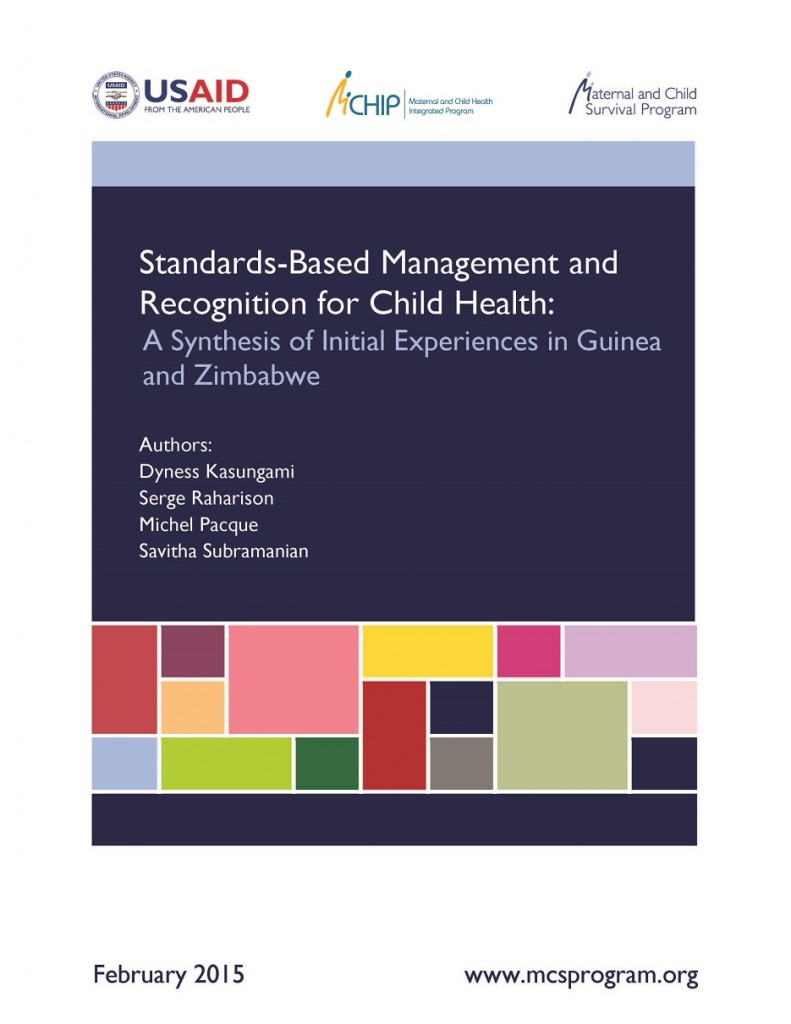
The purpose of this review is to find out how the Standards-Based Management and Recognition (SBM-R®) approach has been applied in two countries, Zimbabwe and Guinea, to improve the quality of care for child health. Since the SBM-R approach is one of many quality improvement approaches, the findings will: (1) inform a process of developing […]
Read More…
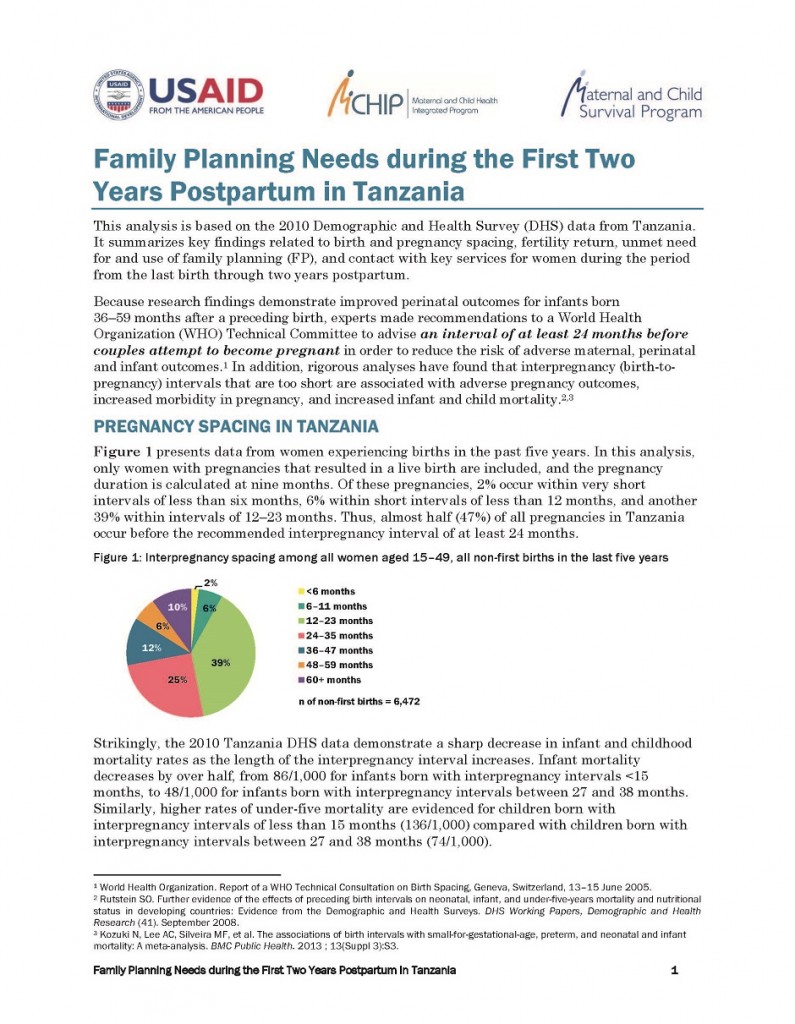
This analysis is based on the 2010 Demographic and Health Survey data from Tanzania. It summarizes key findings related to birth and pregnancy spacing, fertility return, unmet need for and use of family planning, and contact with key services for women during the period from the last birth through two years postpartum. […]
Read More…
